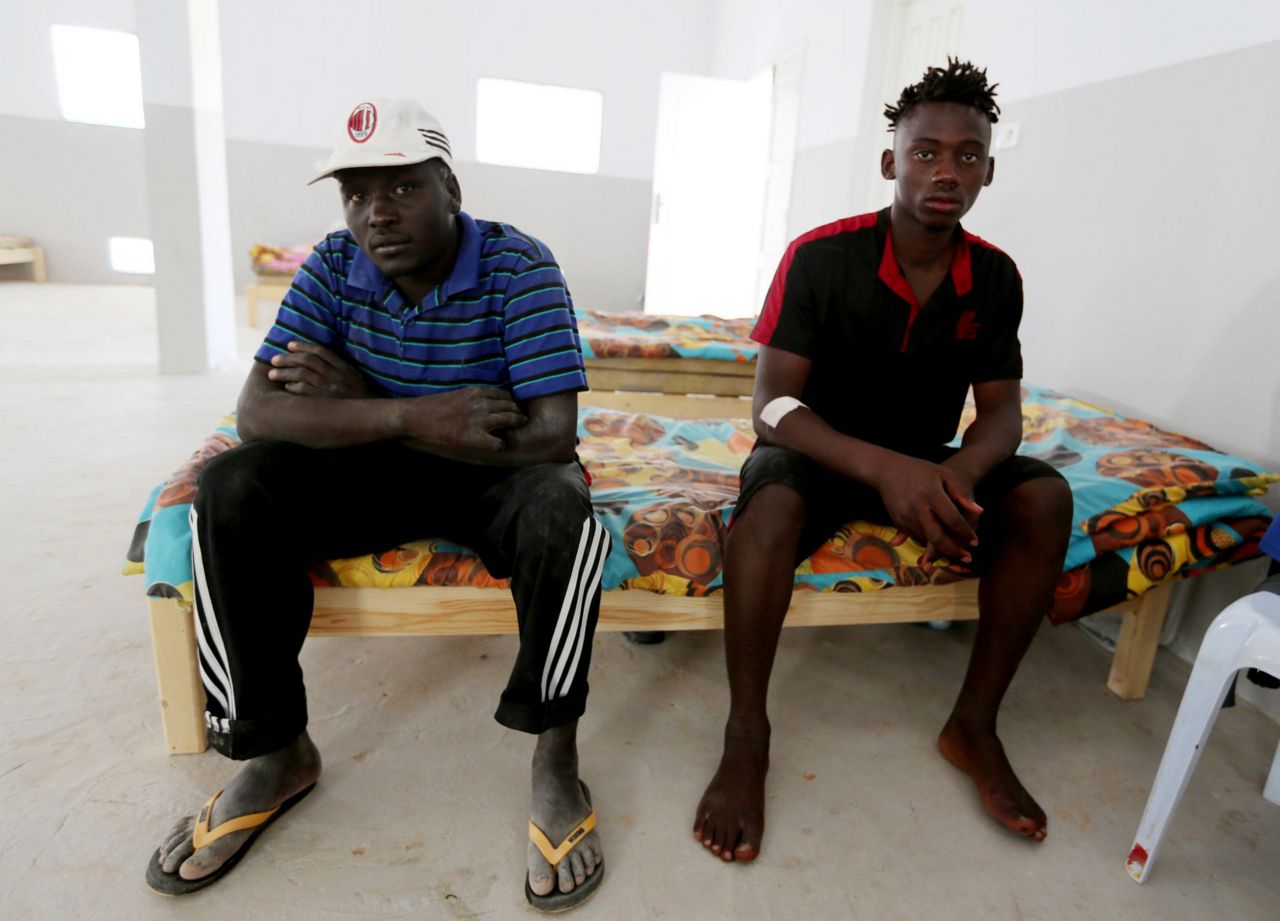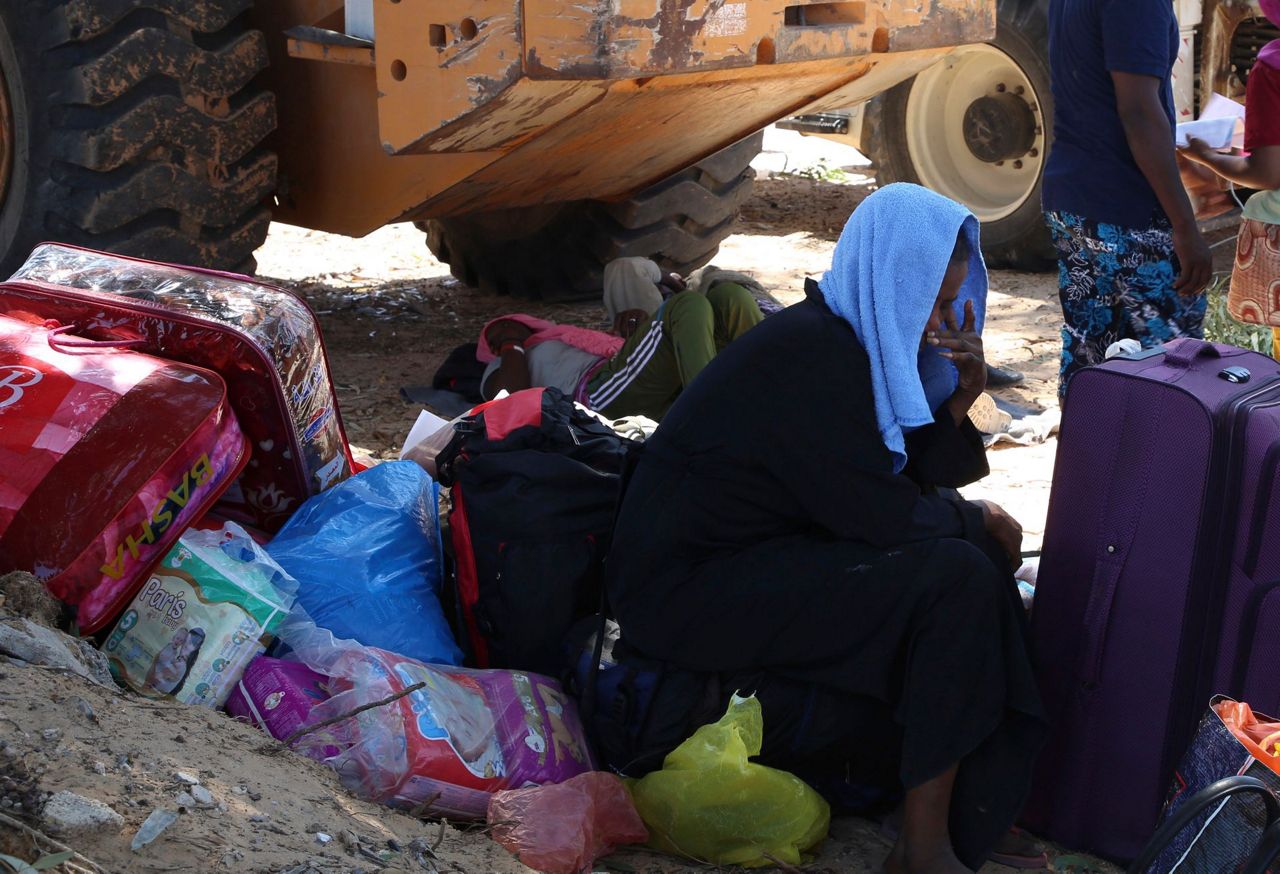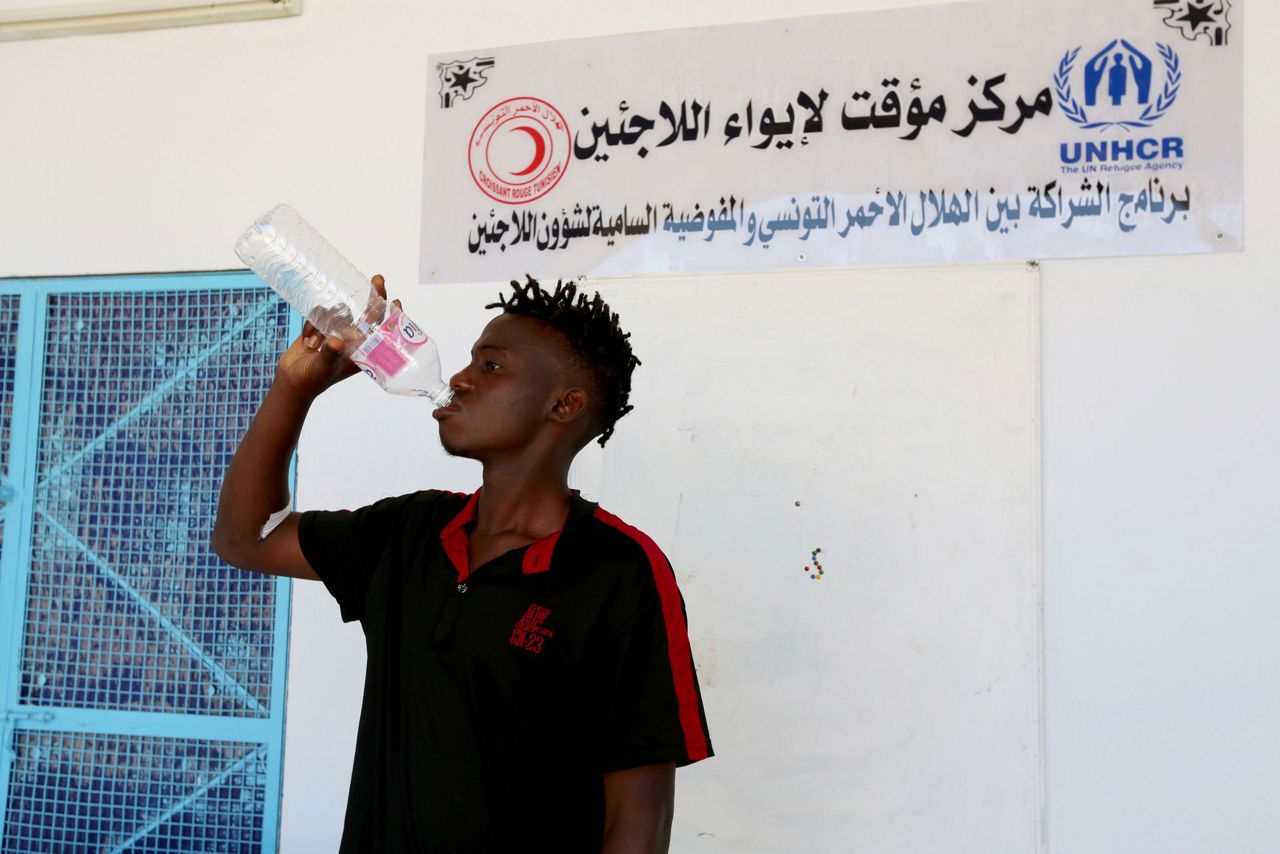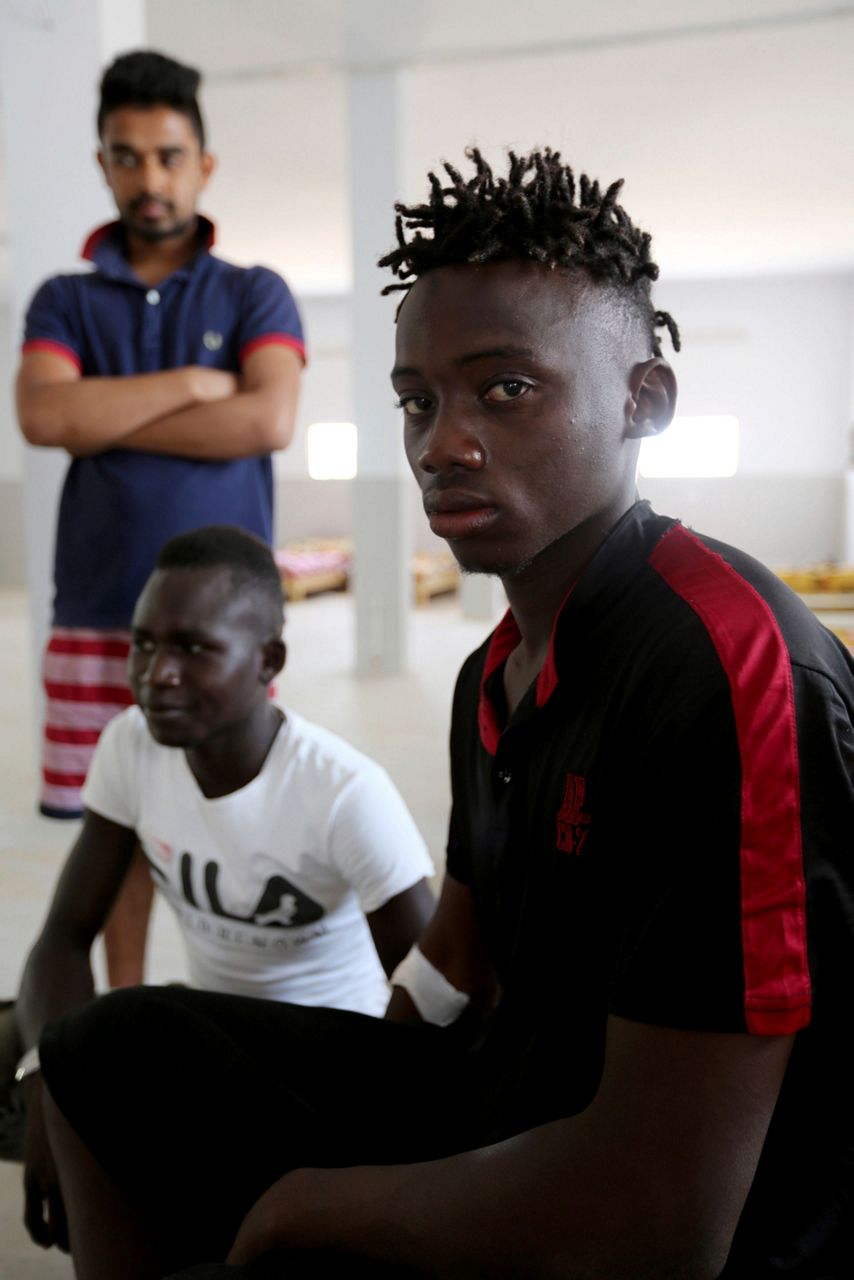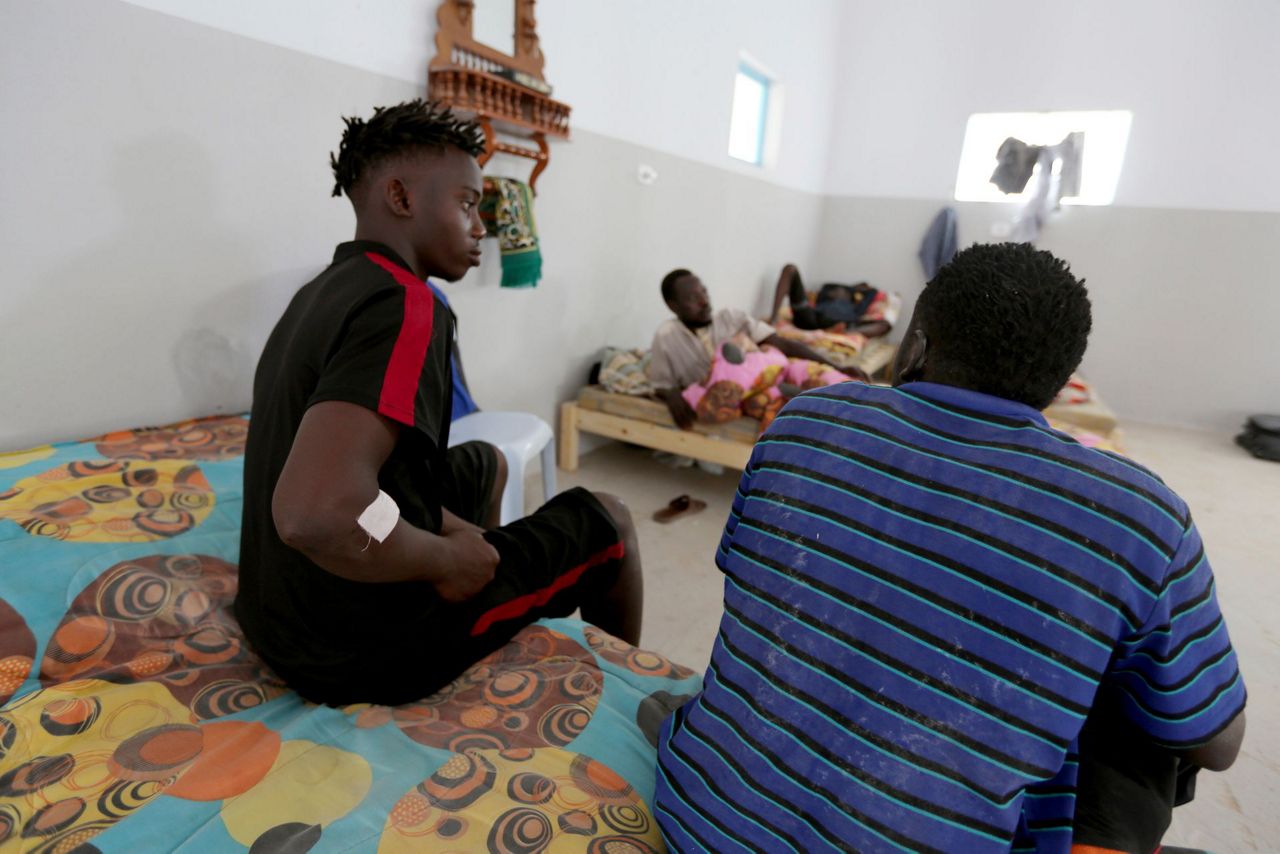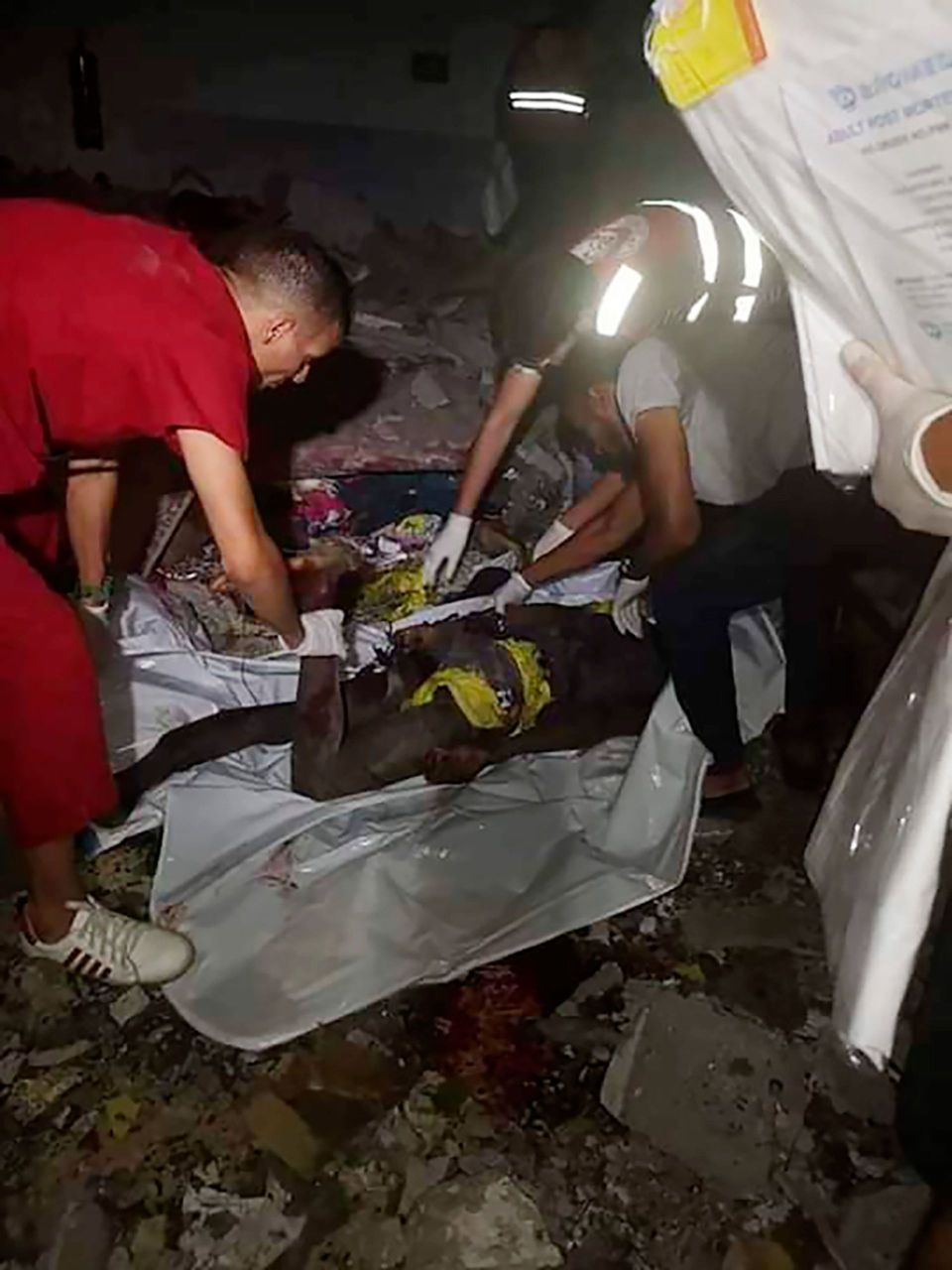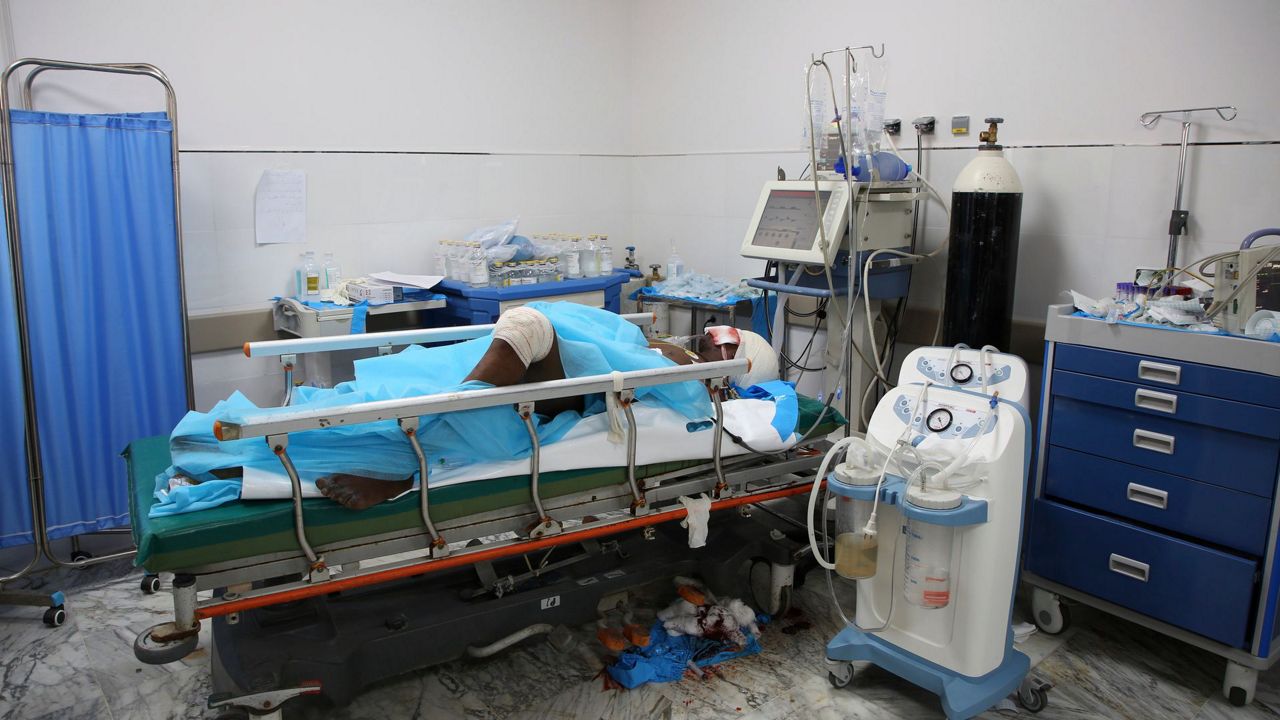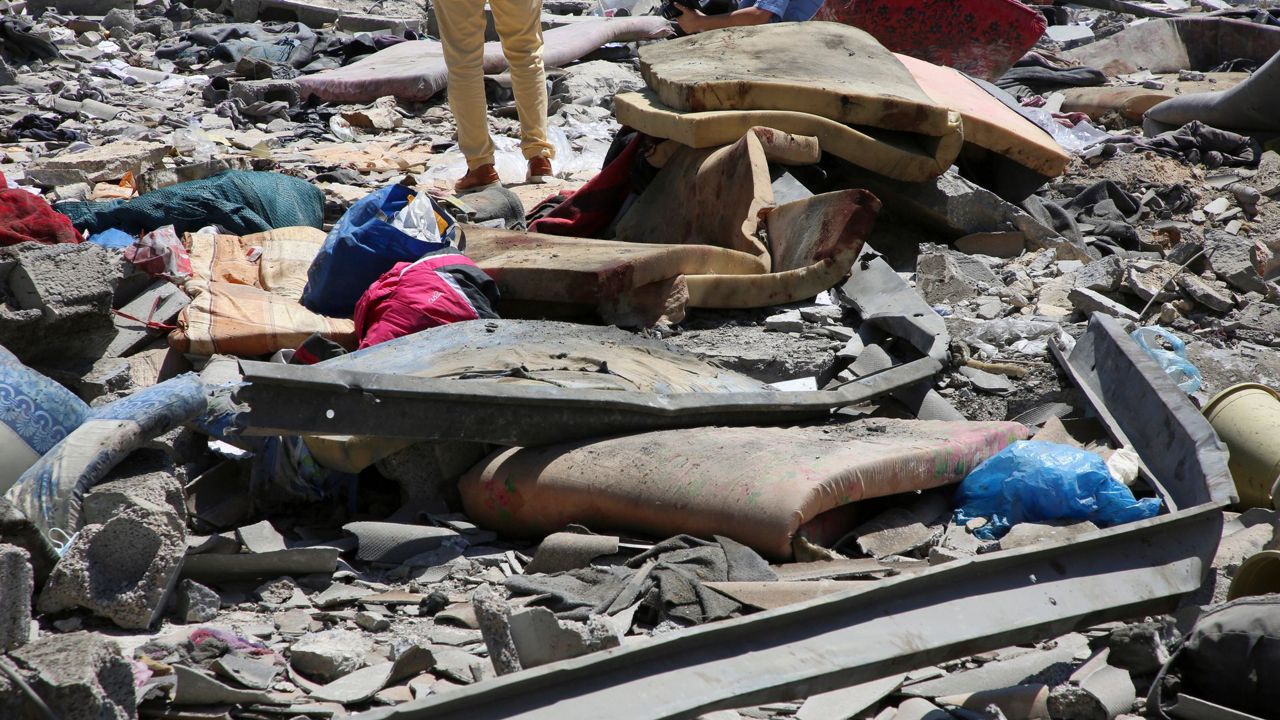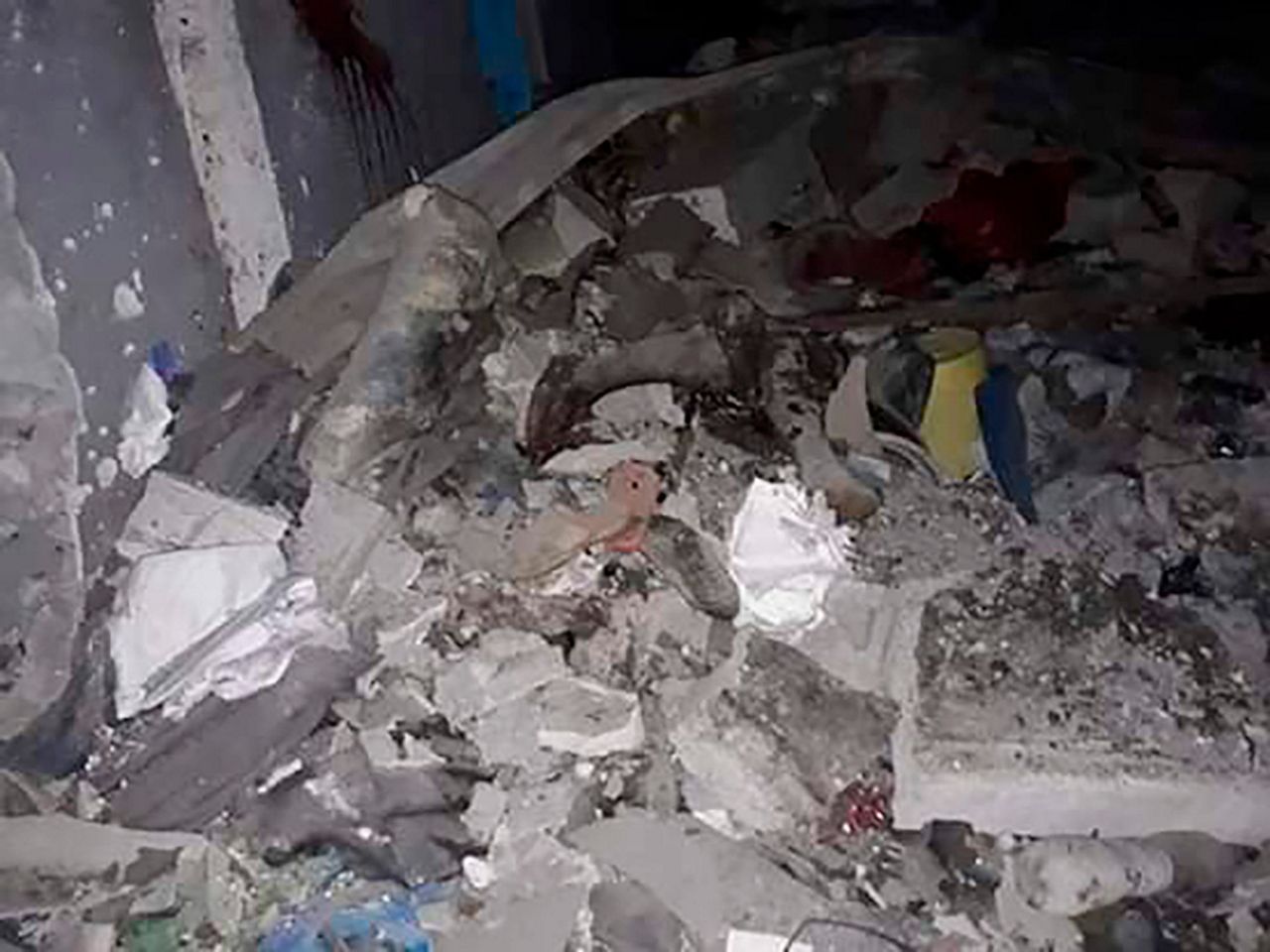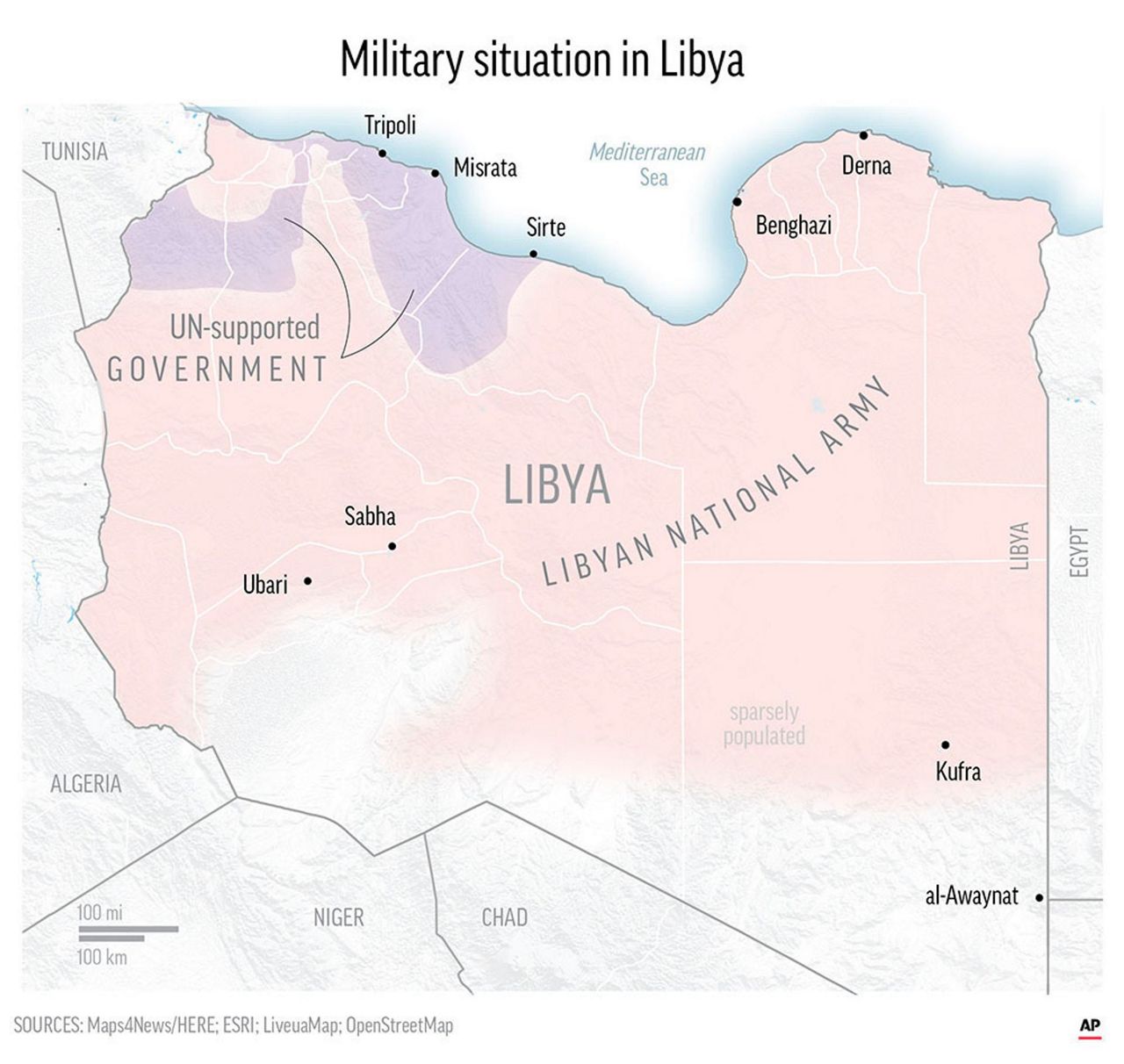CAIRO (AP) — A boat from Libya carrying 86 migrants sank in the Mediterranean and left only three survivors, authorities said Thursday, after an airstrike on a detention center near the Libyan capital killed dozens of others.
The twin tragedies illustrate the almost unthinkable choice facing those who have reached the North Africa coast while seeking a better life in Europe: Risk a hazardous sea voyage in a flimsy, rubber-sided boat, or face being crammed into a detention center, where some of the migrants say they have been forced to assemble weapons for someone else's war.
"I fled from the war, to come to this hell of Libya," said one teenager from sub-Saharan Africa who suffered minor injuries in Tuesday night's airstrike near Tripoli. "My days are dark here."
The International Organization for Migration said the boat sank late Wednesday off the Tunisian city of Zarzis and 82 of the migrants who had been on board were missing. Fishermen pulled four men from the water, and one died overnight, said Lorena Lando, the agency's head in Tunisia, said.
The boat, which had sailed from the Libyan port of Zuwara, was carrying twice as many people as should have been aboard, said Chamseddine Merzoug, a Tunisian Red Crescent volunteer in an interview via Skype.
The United Nations and aid groups blame the deaths in part on the European Union's policy of partnering with militias in war-torn Libya to prevent migrants from trying to cross the sea, saying the policy leaves migrants at the mercy of brutal traffickers or confined in detention facilities near front lines, often without adequate food and water.
Migrants who survived the airstrike said they were conscripted by a militia to work in a weapons workshop at the Tajoura detention center, which had been the focus of a U.N. warning in May after an earlier airstrike hit 100 meters (yards) away.
The wounded teenager said he fled war in his homeland at the age of 14, seeking to join fellow nationals who made it to Europe in rickety boats. But his journey was riddled with torture and abuse. By the time he reached the coast, Europe was no longer so welcoming and he was caught by the EU-funded Libyan coast guard and spent 20 months in the detention center.
For the last eight months, he labored without pay in the workshop adjacent to a hangar housing dozens of migrants, cleaning the militia's weapons, from rifles to anti-aircraft guns, said the youth, who refused to give his name or nationality for fear of reprisal from the militias. When the U.N. or other aid agencies visit, migrants told The Associated Press, the militia hid the weapons.
The decision to store weapons at the facility in Tajoura, east of Tripoli, may have made it a target for the self-styled Libyan National Army, which is at war with an array of militias allied with a weak, U.N.-recognized government in the capital.
The Tripoli government has blamed the LNA and its foreign backers for the airstrike, which killed at least 44 and wounded more than 130. The LNA, led by Field Marshal Khalifa Hifter, says it targeted a nearby militia position and denies striking the hangar where the migrants were being held. U.N. human rights chief Michelle Bachelet said the attack might amount to a war crime.
Hifter, whose forces control much of eastern and southern Libya, has received support from Egypt, France, the United Arab Emirates, Saudi Arabia and Russia.
Many of those who died in the attack were crushed under debris as they slept. Pictures shared by the migrants show the hangar reduced to rubble littered with body parts. More than 48 hours afterward, relief workers were still removing bodies while the wounded lay on bloody mattresses in a courtyard, receiving medical aid.
The teen was sleeping when the munitions fell, obliterating the workshop and knocking him unconscious.
"When I woke up, I found myself inside the hospital," he said. But the injuries to his back and leg were relatively minor and on Thursday he was back at Tajoura, along with hundreds of others who survived the airstrike. There are no plans as yet to evacuate them.
In the aftermath of the airstrike, several of the detainees told visiting aid workers that guards fired on them as they tried to escape.
A group of 29 migrants from Eritrea and Somalia were relocated Thursday by the U.N. refugee agency from a detention center in the town of Gharyan, about 100 kilomters (62 miles) south of Tripoli, where they had been held for months, the group said. Gharyan was the scene of fighting last week and conditions at the detention center were dire, the UNHCR said, adding that the migrants were released to the community.
Nearly at the same time as the bombs hit near Tripoli, a man speaking English made a call for help from off the coast of the Libyan city of Zawiya. He was with at least 60 people, a third of them women and children, and their boat was taking on water quickly, according to the call log from Alarm Phone, an aid group that takes emergency phone calls from the Mediterranean.
He said the passengers are afraid of dying, and the boat is sinking quickly, but he could see the lights of the town still twinkling in the distance. The responder said their best hope was the Libyan coast guard but he needed to give a GPS location.
"I only have a little phone," he replied.
The coast guard never went out that night.
On Thursday, the U.N. migration agency confirmed a boat sank off the Tunisian coast, maybe 100 kilometers (60 miles) away, with 86 people on board. Only three survivors were found.
It was not immediately clear if that the boat was the source of the phone call, or if Thursday had brought yet another tragedy from Libya.
Also on Thursday, the Italian humanitarian group Mediterranea Saving Humans said one of its sailboats has rescued 54 migrants about 65 nautical miles north of Libya.
The rescue went ahead even though Italian authorities told the group to stand down and let the Libyan coast guard handle it, said Beppe Caccia, onshore coordinator for group.
A previous rescue by a German humanitarian group led to a 17-day standoff with Italy before the captain forced her way into the port of Lampedusa.
Salah Marghani, former Libyan justice minister and a human rights lawyer, said any European condemnation of the airstrike is hypocrisy. Led by Italy, the EU has trained and funded the Libyan coast guard despite its record of abuses, and also relied upon militia-run detention centers to lock up migrants indefinitely, fueling instability.
The EU has said repeatedly, including after the airstrike, that migrants should be evacuated to safe places, but has offered no specifics — or a haven for more than a handful from Libya.
"This policy intentionally turned Libya into a firewall to refugees who escaped war and famine in Africa," Marghani said. "This firewall gives the refugees two choices: either to drown while trying to escape Europe, or being arrested in the high sea to be sent back to Libya."
___
Michael reported from Cairo; Hinnant from Paris. Contributors include Jamey Keaten in Geneva, Renata Brito in Barcelona, and Bouazza Ben Bouazza in Tunis, Tunisia.
Copyright 2019 The Associated Press. All rights reserved. This material may not be published, broadcast, rewritten or redistributed.



